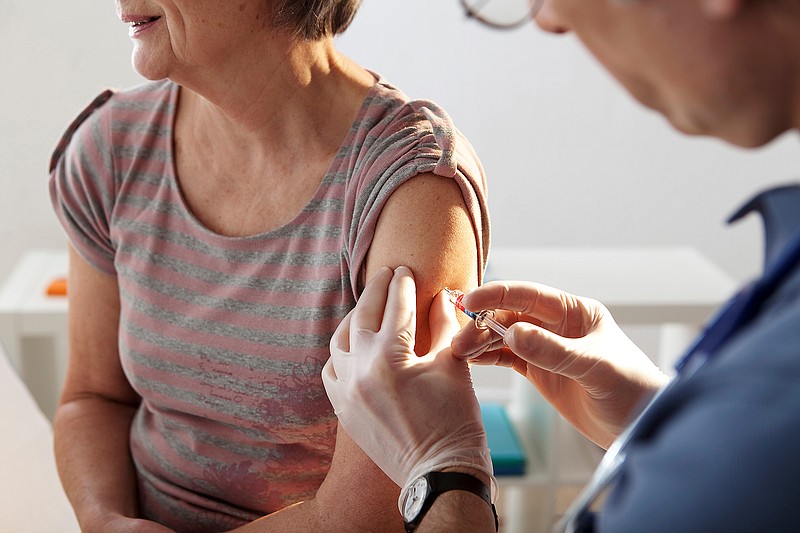TEXARKANA -- Local doctors say they have seen a sudden uptick in flu cases in the region over the past month.
Medical professionals at CHRISTUS St. Michael Health System, Texarkana Emergency Center & Hospital and Wadley Regional Medical Center all confirmed a recent increase in flu cases, and one said the timing of the increase is a concern.
"In the past month and really over the past couple of weeks, we've seen a large increase in respiratory illness cases, with the majority being the flu," said Dr. David Darrigan, an ER physician at CHRISTUS St. Michael. And this isn't just in this area, it's across the state and the region.
"Generally, the bad flu season hits us in January or February, so I'm a little concerned that it's happening a little earlier than usual. And I don't think that means that it's going to go away earlier just because it started earlier."
Dr. Matt Young, chief medical officer of the Texarkana Emergency Center & Hospital, said while flu cases are rising, COVID cases have leveled off as of late. Many of the flu symptoms are similar to COVID -- fever, chills, body aches, cough, congestion, weakness, fatigue and sore throat.
"That's why we recommend that people get seen by their provider because we still are in the surveillance time for COVID as well," he said. "Fortunately, there have been very few COVID cases. But unfortunately, the flu is very widespread in our area."
Wadley has reported a sizable uptick in flu cases in its ER over the past four weeks and an additional increase this past week. A small percentage of patients with the flu are admitted with severe symptoms, while the majority are treated and released, according to a statement released by the hospital.
Young contributes some of the recent increase to holiday get-togethers.
"Around this time of the year, there are more social functions. People are going to church and get-togethers of that nature more where, unfortunately, you're going to come across it," he said. "And you're going to come across it in daily activity as well."
Darrigan said the medical community expected this to be a bad respiratory season because of the combination of viruses in the air right now, in addition to the relaxed COVID regulations over the past year.
"We knew that these viruses were going to come back, and some people have lost some of their natural immunity to some of these things that we had natural immunity to before COVID," he said. "So, there is an effect from the last couple of years of not being at work or being in the public as much for so long, and now people are back at work and probably not washing their hands as much."
Combining that with people getting out and visiting with their families for holidays is a recipe for more respiratory illness cases, Darrigan said.
Young said he's hopeful the rise in cases doesn't last long.
"As we see more people exposed to it, hopefully we'll see a decrease in the amount of acute cases we see because of the exposure. But it's just too early to predict now," he said.
Darrigan emphasized using caution if there is a need to visit a hospital.
"Most hospitals are full, and especially the pediatric hospitals," he said. "It's very important for patients to stay vigilant, wash their hands and stay home if they can to avoid going to the hospital, because they are largely at their capacities right now."
For those with flu-like symptoms, doctors recommend not attending social events or going to work, as well as getting evaluated for the symptoms within 48 hours of onset.
Getting the flu vaccine annually is also highly encouraged.
"Following CDC recommendations, we encourage a yearly flu vaccine as the first and most important step in protecting against flu viruses," said Dr. Robert Bowers, medical director of the Wadley Emergency Department. "Also, taking preventive actions to reduce the spread of flu -- such as avoiding close contact with people who are sick and if you are sick, limit contact with others;cover coughs and sneezes; wash your hands often; avoid touching your eyes, nose and mouth; and disinfect surfaces and objects that may be contaminated."

